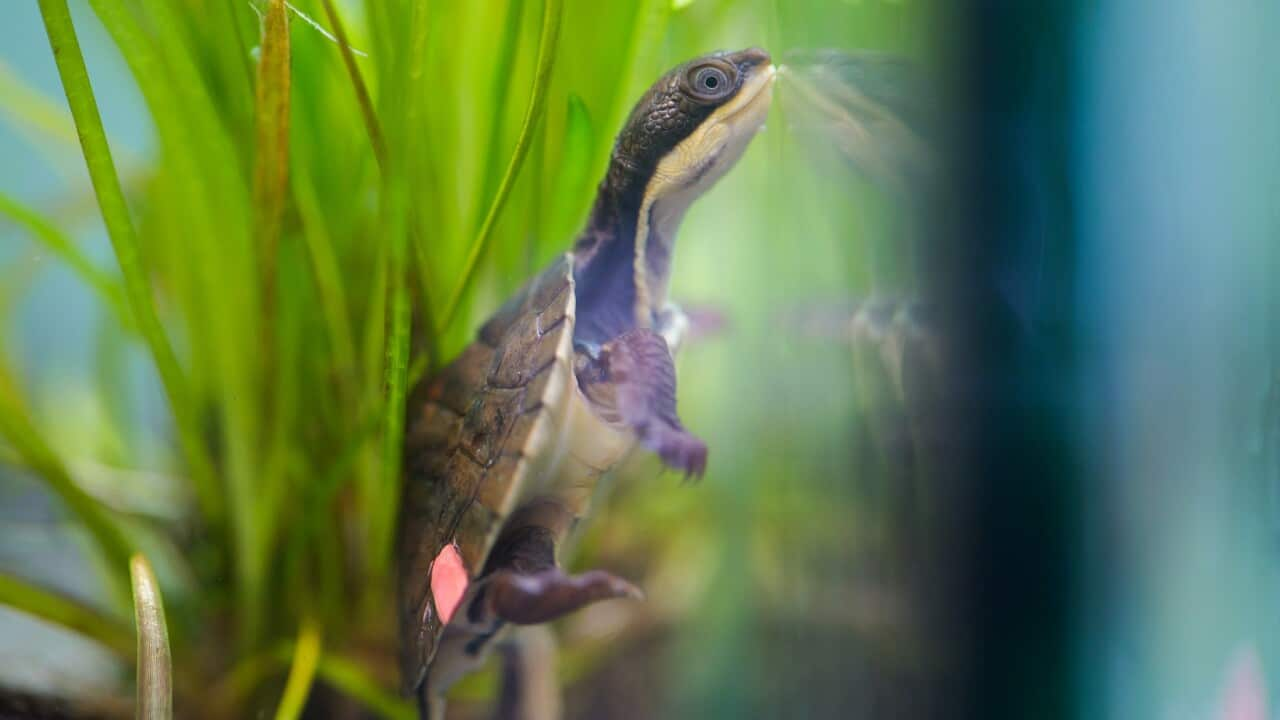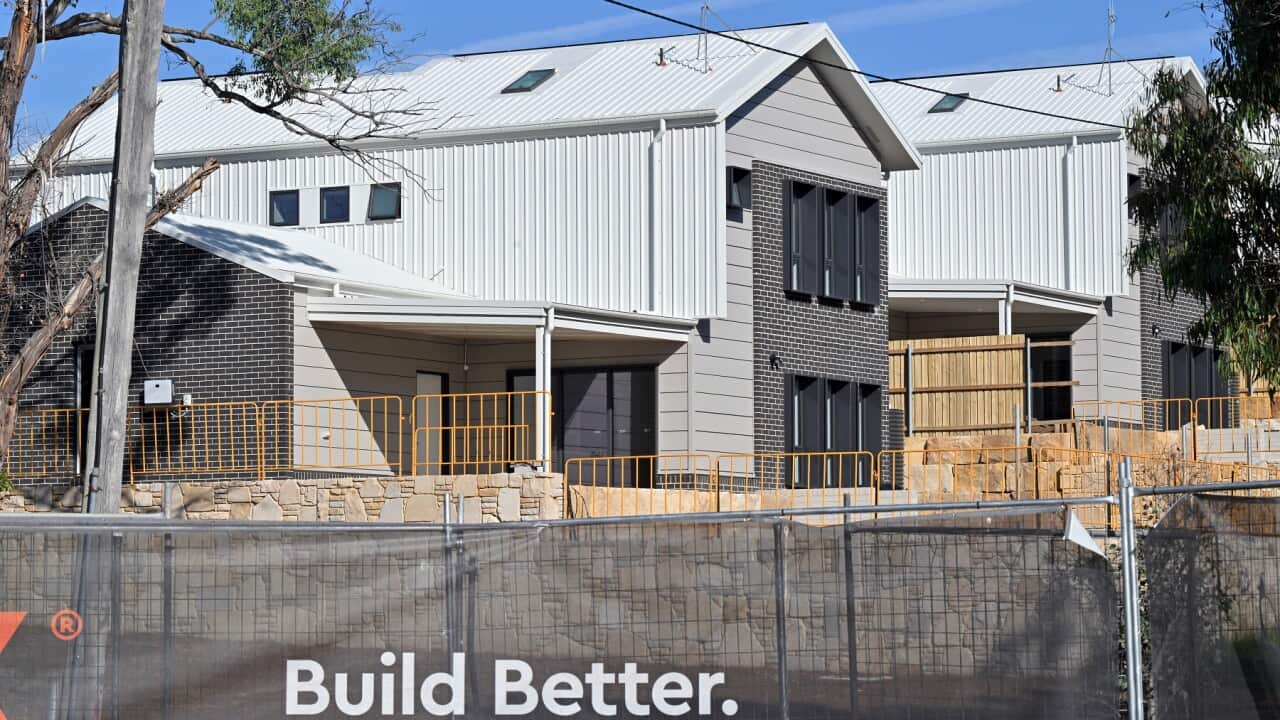ITALIAN
Per anni, Ameena Payne ed il suo compagno hanno combattuto con l’idea di avere bambini.
La 33enne ha detto che l’incertezza riguardo a quale tipo di mondo erediterà la prossima generazione ha alimentato la sua esitazione.
“Fires and, you know, increased droughts and floodings that we're hearing about, as well as economic crises, it's all really impacted our decision about whether we want to bear children of our own.”
Alla fine i due, che stanno assieme da sei anni, hanno deciso di non diventare genitori.
E non sono da soli.
“What I've noticed with my friendship circle is that we're really taking family planning seriously. It’s not just about, you know, financially, are we ready, but also can the world sustain more children?”
La dottoressa Carla Pascoe è una storica della maternità, dell’infanzia e della famiglia.
Secondo lei un numero sempre maggiore di donne in tutta l’Australia si sta facendo proprio questa domanda.
Questa è la ragione per cui lei e la sua squadra di ricercatori hanno iniziato uno studio (il primo nel suo genere) su come il cambiamento climatico stia influendo sulla decisione di procreare.
“What was really interesting was when we put out our call for participants on social media was that we were flooded with responses; it was as though we touched a nerve.”
Il progetto Maternal Futures, una collaborazione tra la University of Tasmania, la University of Edinburgh e la Flinders University, sta esaminando il modo in cui il cambiamento climatico, inclusi i recenti bushfires e le grandi alluvioni australiane, stiano manipolando le decisioni riguardo alla maternità.
Lo studio si sta ancora svolgendo, ed i risultati saranno pubblicati nel prossimo anno.
La dottoressa Pascoe ha detto che finora la squadra ha intervistato approfonditamente 10 donne sparse per l’Australia, dalle capitali alle zone regionali e da diversi contesti culturali.
“Many of them feel a deep yearning to have children and become a mother. But at the same time, they feel very unsure and ambivalent about what kind of future their potential children could have.“
I numeri dell’istituto australiano di statistica dicono che nel 2020 in Australia ci sono state 294,369 nascite, un record negativo di tasso di fertilità.
C’erano quasi 310mila nascite registrate nel 2021, che è il 5 per cento in più. La direttrice di demografia dell’Istituto, Emily Walter, ha detto che c’è stato un declino generale del tasso di fertilità nell’ultimo decennio.
“The last peak we saw was in 2008 at 2.02 babies per woman and since then it has, with fluctuations, been on that decline.”
La dottoressa Pascoe sta anche investigando su come disastri simili possano influenzare le decisioni di donne che sono già madri.
“Our Mothering in Crisis research is finding that climate change is already affecting Australian mothers in really profound ways. As disasters increase, mothers are really spending a lot of time thinking very carefully about how they can protect their family in the 21st century, that's things like where they should live and create a safe family home, how to prepare for future disasters.”
Quello studio si concentra su donne della regione del Gippsland in Victoria, un’area duramente colpita da disastri, principalmente una serie di grandi bushfires nell’ultimo decennio.
L’insegnante di scuola elementare Jane Sultana, madre di due figli adolescenti, ha vissuto questi bushfires, e ha detto che questo ha avuto ripercussioni sul modo in cui lei cresce i suoi figli.
“When we go on family holidays in the summer we don't go very far away because we don't want to be caught in bushfire activity while we are driving. We've built our home as energy-efficient as possible. We try to shop, reducing our impact on the enviroment by choosing less-packaged foods. I do really fear for the future of my children. What is climate change going to do to the Earth and how is it going to impact their future?”
ENGLISH
For years, Ameena Payne and her partner wrestled with the idea of having children.
The 33-year-old says the uncertainty around what kind of world the next generation will inherit is what fuelled their hesitancy.
“Fires and, you know, increased droughts and floodings that we're hearing about, as well as economic crises, it's all really impacted our decision about whether we want to bear children of our own.”
Ultimately the couple, who have been together for six years, have decided not to become parents.
And they're not alone.
“What I've noticed with my friendship circle is that we're really taking family planning seriously. It’s not just about, you know, financially, are we ready, but also can the world sustain more children?”
Dr Carla Pascoe is a historian of motherhood, childhood and family.
She believes a growing number of women across Australia are asking this very question.
It's the reason she and a team of researchers have launched a first-of-its-kind study into how climate change is influencing reproductive decisions.
“What was really interesting was when we put out our call for participants on social media was that we were flooded with responses; it was as though we touched a nerve.”
The Maternal Futures project, a collaboration between the University of Tasmania, the University of Edinburgh and Flinders University, is examining how the impacts of climate change, including Australia’s recent bushfires and major floods, is shaping decisions around motherhood.
The study is still underway with the findings due to be published next year.
Dr Pascoe says so far, the team has conducted extensive interviews with 10 women across Australia, from capital cities to regional hubs and from a range of different cultural backgrounds.
“Many of them feel a deep yearning to have children and become a mother. But at the same time, they feel very unsure and ambivalent about what kind of future their potential children could have.“
Australia Bureau of Statistics figures show Australia registered 294,369 births in 2020 – a record of low fertility rate.
There were close to 310,000 registered births in 2021, that's 5 per cent higher, Bureau Demography Director Emily Walter says there has been an overall decline in fertility rate over the past decade.
“The last peak we saw was in 2008 at 2.02 babies per woman and since then it has, with fluctuations, been on that decline.”
Dr Pascoe is also exploring how such disasters are affecting the decisions of women who are already mothers.
“Our Mothering in Crisis research is finding that climate change is already affecting Australian mothers in really profound ways. As disasters increase, mothers are really spending a lot of time thinking very carefully about how they can protect their family in the 21st century, that's things like where they should live and create a safe family home, how to prepare for future disasters.”
That study is focusing on women in the Gippsland region of Victoria, an area hard-hit by disasters - most notably a series of major bushfires over the past decade.
Primary school teacher Jane Sultana, a mother of two teenage sons, has lived through them all and says it's affected the way she raises her children.
“When we go on family holidays in the summer we don't go very far away because we don't want to be caught in bushfire activity while we are driving. We've built our home as energy-efficient as possible. We try to shop, reducing our impact on the enviroment by choosing less-packaged foods. I do really fear for the future of my children. What is climate change going to do to the Earth and how is it going to impact their future?”
Report by Abbie O'Brien for SBS News.




